.jpg)
Greetings great Stermians in the great Steemit Crypto Academy community. I'm glad I participated in the lecture of Professor @pelon53 on BLOCKCHAIN EOS.
I'm here again this week with my homework post for this week.

1.- Explain the Delegated Proof of Stake, DPoS algorithm.
Delegated Proof of Stake (DPoS)
The DPoS was developed for the main purpose of securing crypto blockchains through the validation of blocks according to users ownership of any currency.
Delegated Proof of Stake is regarded as the original consensus algorithm of a Blockchain. It was developed as a supplement to Proof of Work.
Delegated Proof of Stake (DPoS) is a concept developed by an American software developer named Daniel Larimer. Daniel Larimer also founded the Steemit, BitShares, and EOSIO software.
How DPoS algorithm operates
In Delegated Proof of Stake miners rewards according to the amount of coins a user holds which means miners mine depending on their mining power. Blocks are added to a blockchain after been validated by different nodes in the system.
DPoS is sustained through an election system whereby nodes are chosen for validation of blocks. Nodes are referred to as witnesses. The election process of the consensus algorithm consist of a processes known as the voting process.
- Voting: This is the process whereby an DPoS consensus user vote for a witness or a delegate by staking their tokens on the name of who dey want to vote for. At the end of the voting process, any candidate with the highest votes is selected as a witness or delegate. The number of witnesses are limited.
DPoS is said to be democratic because every user is legible to vote regardless of the voting power that is the amount of token a user holds.
Witnesses are the ones in charge of validation of transactions and creation of new blocks in a blockchain.
Delegates are always in charge of the blockchain governance.
Advantages of DPoS
- DPoS is Democratic as it doesn't restrict users with less amount of token from participating in voting processes.
- DPoS requires less power energy for its operation.
- It doesn't require expensive equipments for its operations.
- It encourages users to build high amount of tokens as users with who holds higher amount of tokens gets higher rewards.
Disadvantages of DPoS
- DPoS is exposed to centralization since there are limited number of witnesses.
- Since the amount of token a user holds determines its voting power, votes of users with very low amount of token could be insignificant.

2.- Explain What are Ricardian contracts on the EOS Blockchain?
Ricardian contracts
A Ricardian Contract can simply be referred to as a legal contract between two parties. These contracts could be smart contracts actions, terms, and conditions intentions etc.
The concept of Ricardian contracts was introduced by Ian Grigg a well-known programmer in 1995.
Ricardian contracts is a digital document which shows the agreement between parties showing clearly the terms and conditions of the agreement.
The EOS blockchain is like a supportive pillar for defining Ricardian Contracts. It gives a clear understanding of an agreement between two parties, these agreements are made visible and broken down to a plain language so both humans and machines can read and comprehend.
EOS also paired Ricardian Contracts with Smart Contracts so as to make users understand the terms and conditions of a smart contract before signing it since transactions of blockchain are irreversible. EOS employs Ricardian Contracts with the intent of auditability and transparency

3.- Explore the official EOSREX interface (eosauthority.com) Show screenshots.
EOSREX Official Interface
- I visited the website eosauthority.com To explore the official EOSREX interface
The main page displays the EOS current price, market range, the high and low of the previous day, the previous day changes and the volume.
It also displays the current block and who produced it, total EOS Wallets, staked and unstaked, voters, RAM and CPU usage and many more.
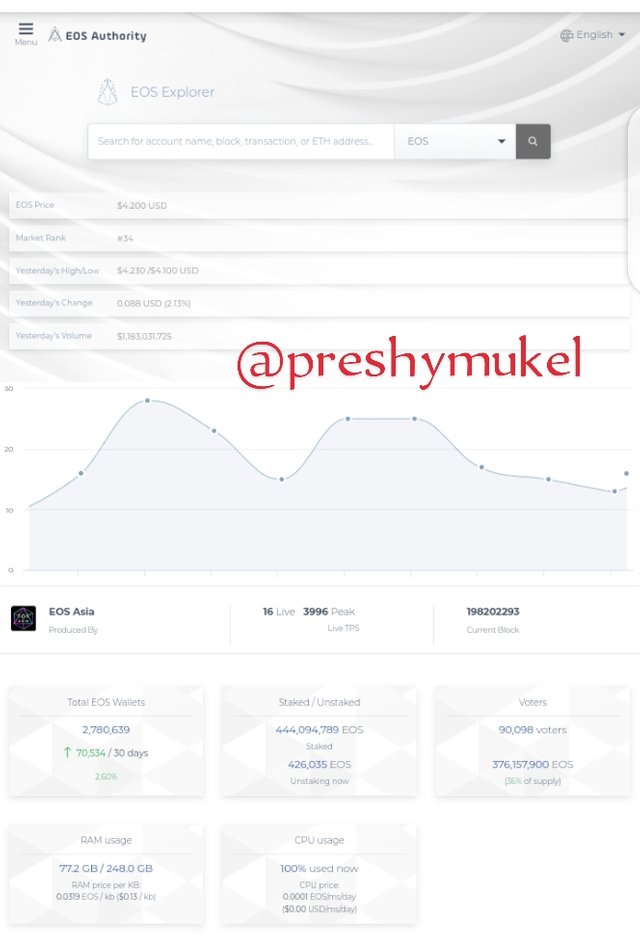
- Click the menu icon at the top right to access all the options on the platform, the options includes; Dashboard, Wallet, Rex, Power Up, Manage CPU/RAM, Manage keys, Vote, Create Account, Bid Name, Alerts and Trade your Tokens.
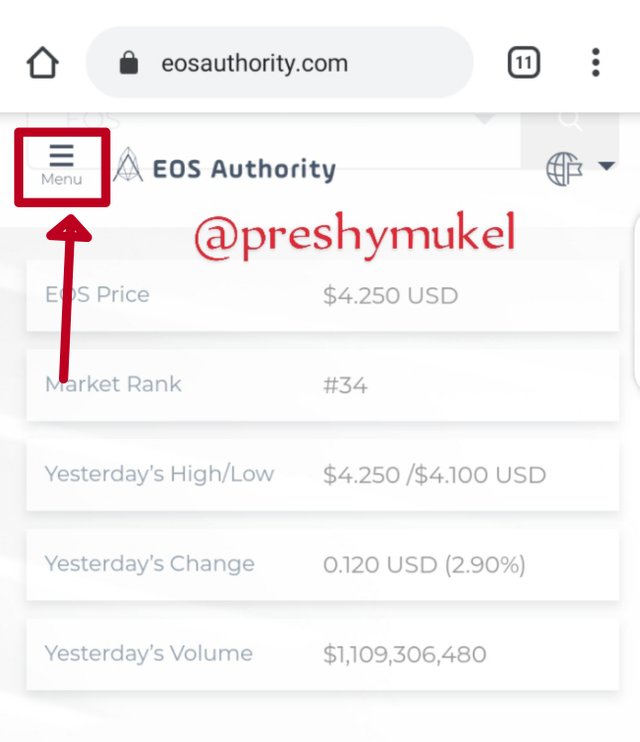
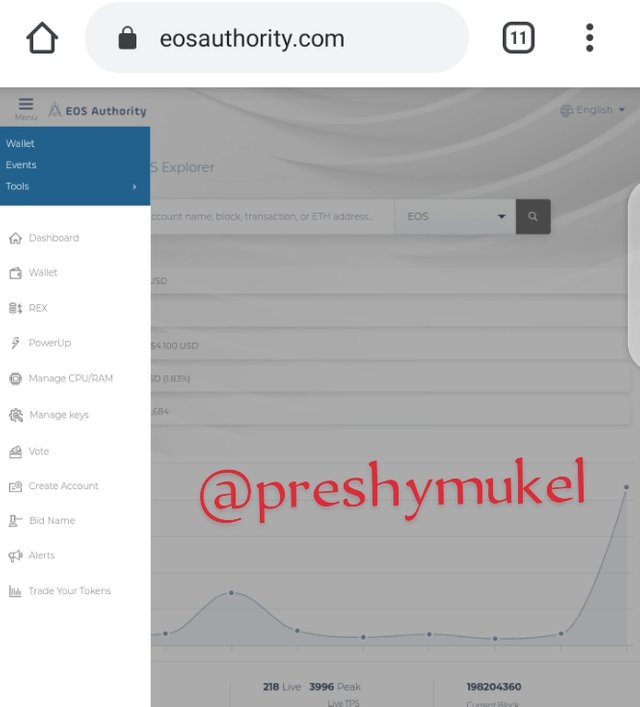
Exploring the different options on the EOS platform
Dashboard:
- When I clicked on the first option on the menu item which is the Dashboard, it displays details of the EOS account such as total EOS balance, , price graph, security, Airdrops balance, Rex balance and activities Recent.
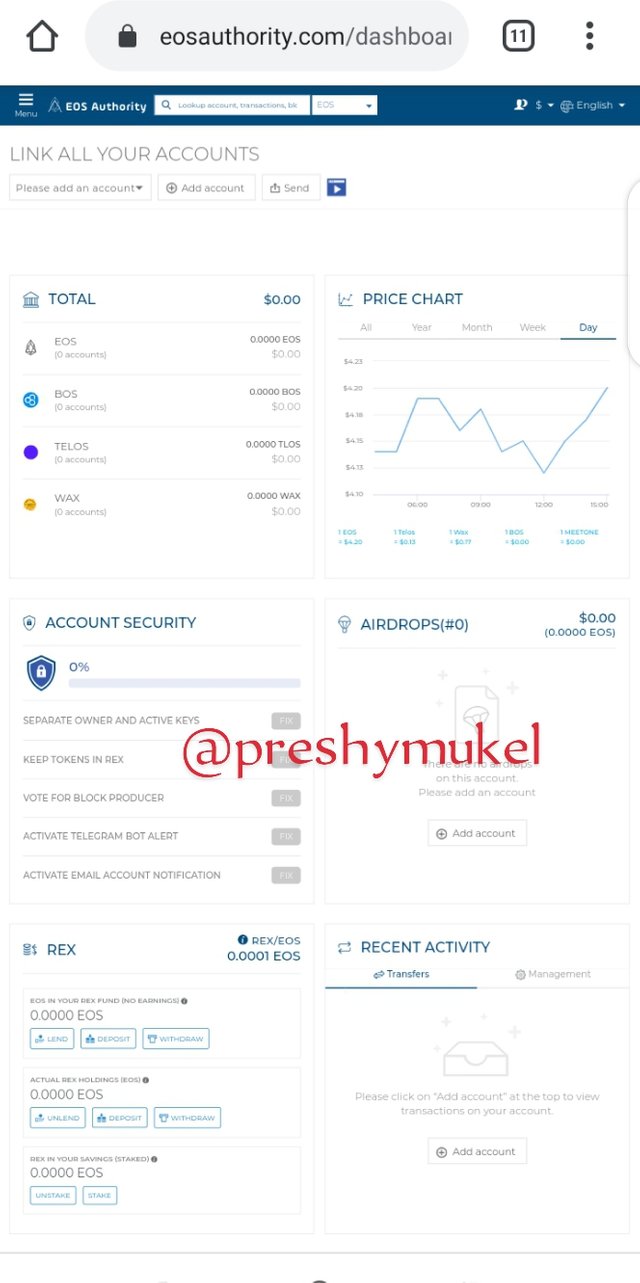
Wallet:
The wallet is the second item on the menu list, its where a user can add accounts to the EOS wallet.

Rex:
This is the third item on the menu list. It contains the REX balance and also consist of options such as; Lend/Unlend REX, Borrow CPU/Net (DApps), REX Calculator, REX Statistics and each of these items have their specific functions.
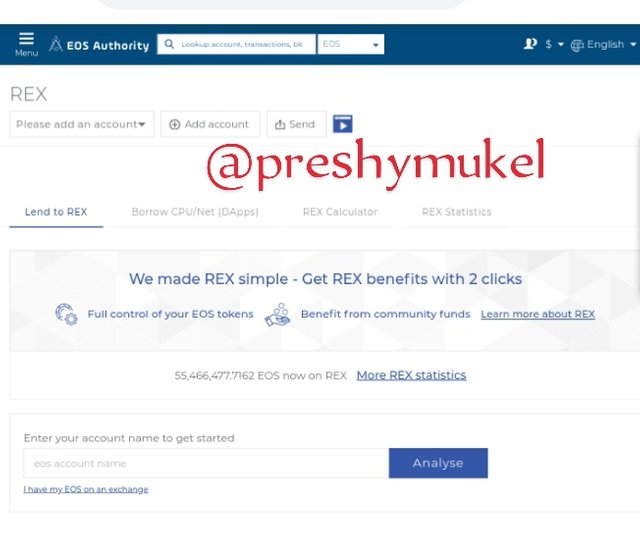
Power Up:
From the Power Up item, a user can Get Power his/her EOS account, and can also access the PowerUp Calculator and PowerUp Statistics.
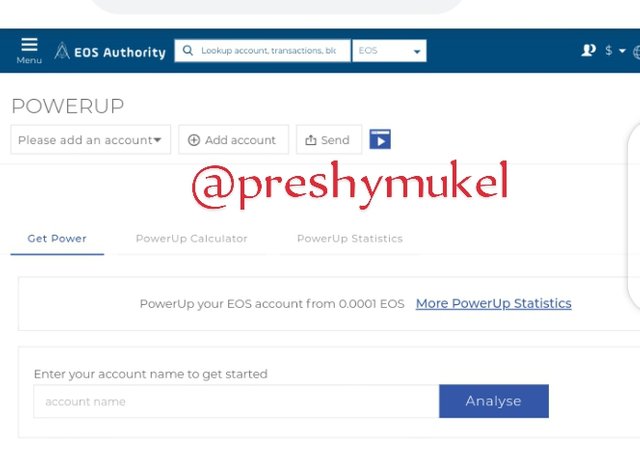
Manage CPU/RAM:
The manage CPU/RAM, its in this item we manages our CPU and Ram and it consist items such as,; Unstake Tokens, Stake Tokens, Undelegate, Delegate, Ram Market (Sell/Buy).
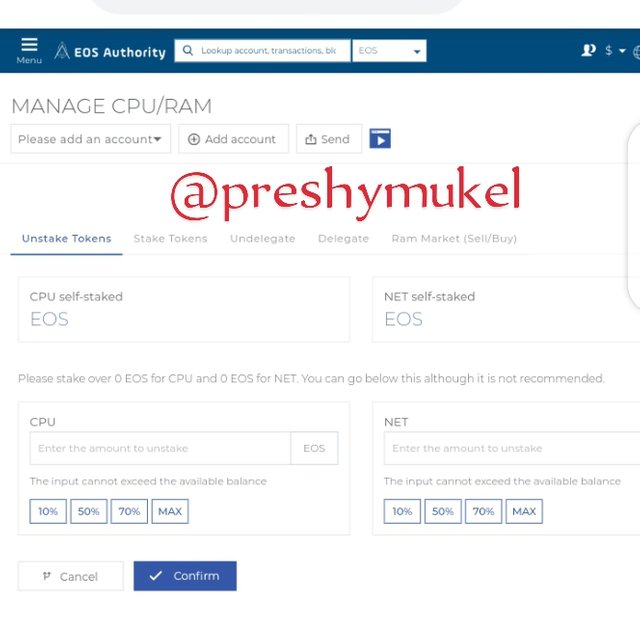
Manage keys:
Users changes their permission on the manage keys item.
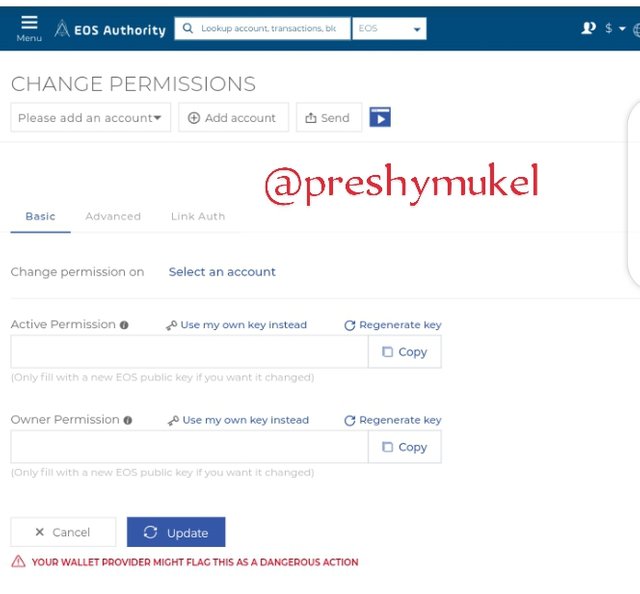
Vote:
This is where users chooses delegates who will be in charge of validating blocks, and this is done through voting.
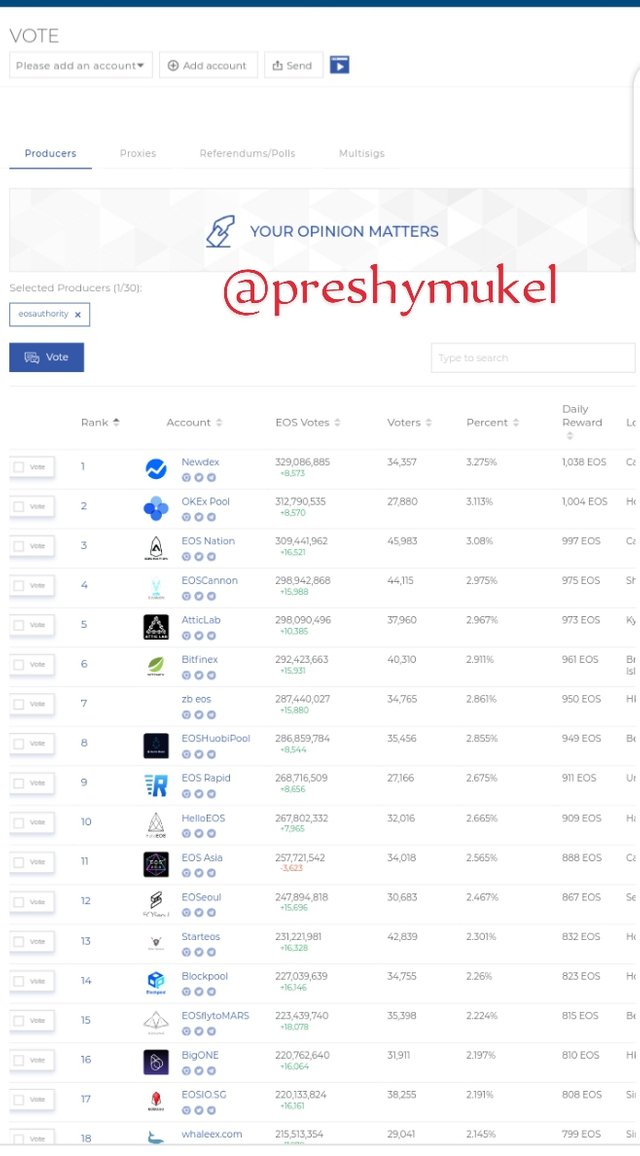
Alerts:
This is where a user receives all notifications concerning the account on the platform. A user can also decide to link it to his/her email address.
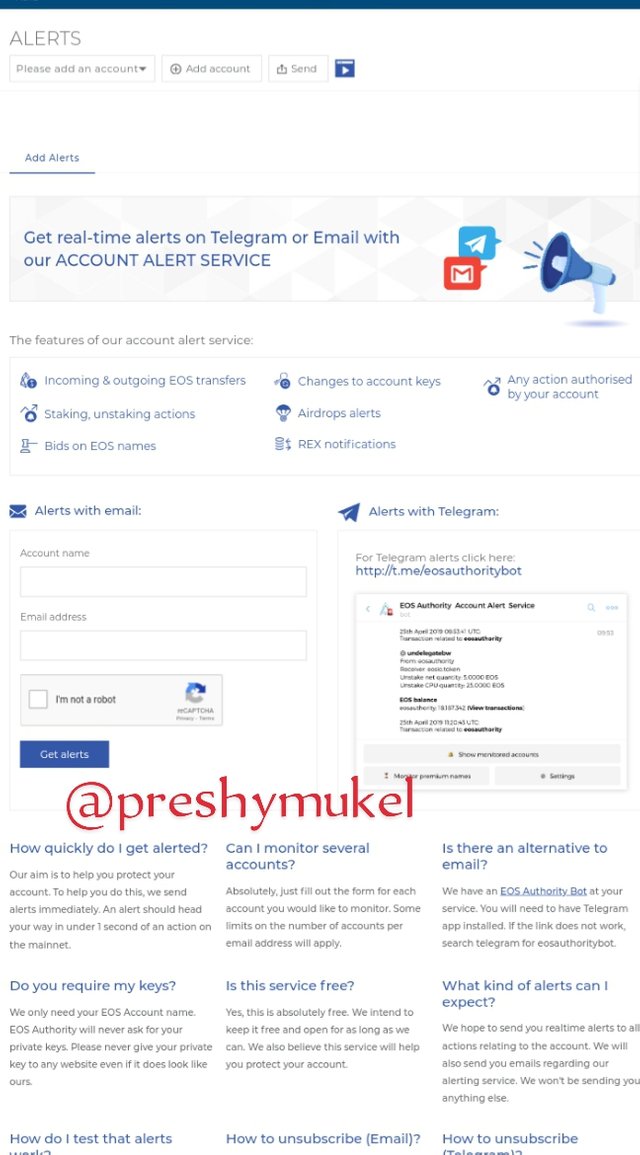

4.- Download the Sqrl wallet, explore and explain how to obtain CPU, RAM and Network. Show screenshot.
- I visited the official website of the SQRLWALLET to download the wallet.
I clicked on windows to download the windows version since I was using a PC.
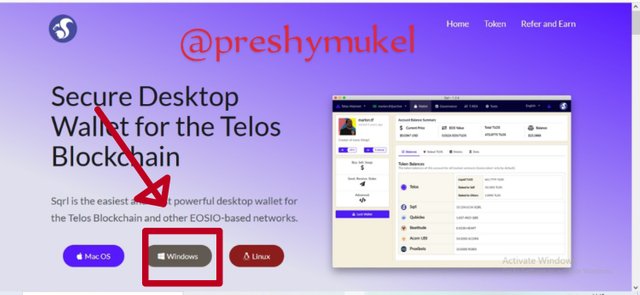
- After downloading and and installation of my wallet, I clicked on import existing account to import my existing account.
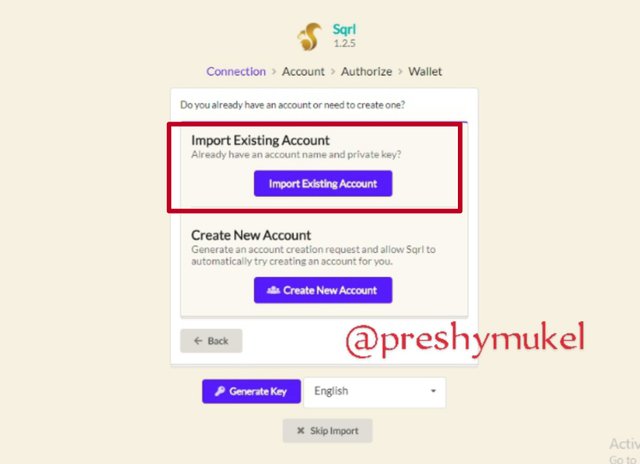
- I inputted my wallet public keys and clicked on look up to continue.
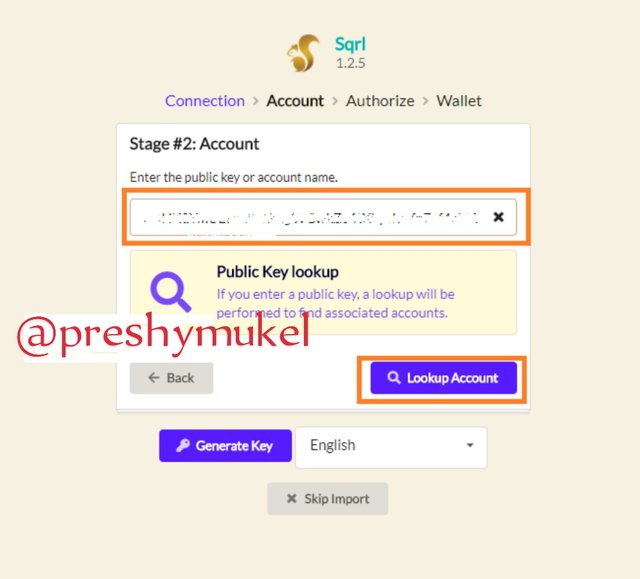
- I inputted my wallet private keys and clicked on compare keys.
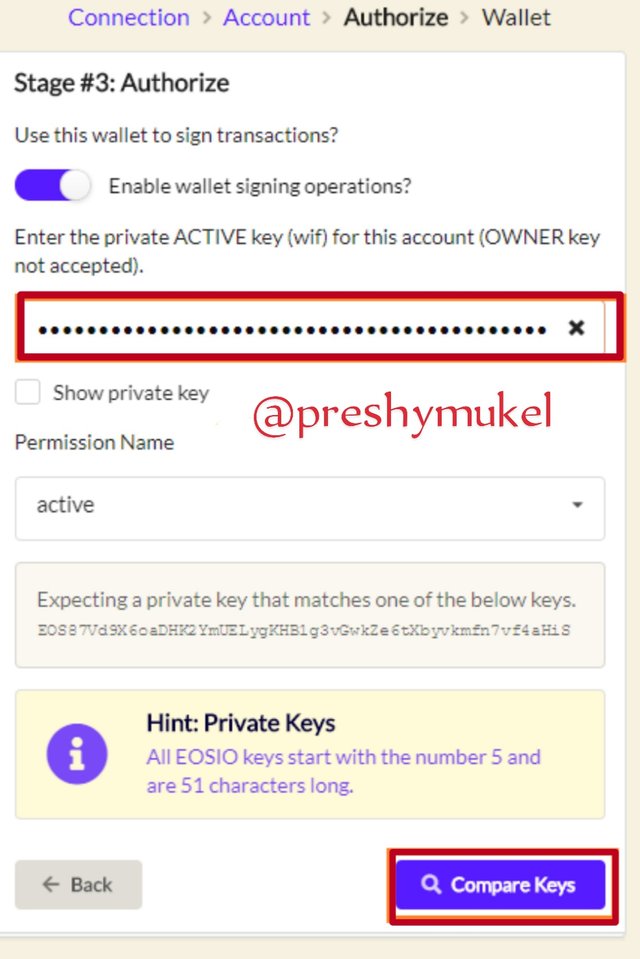
- I created my local Wallet password clicked on save account then I was asked to confirm my password which I did.
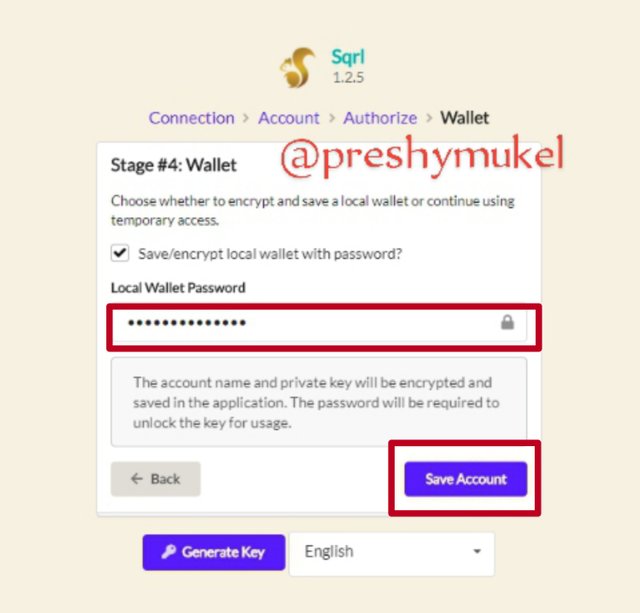
- My account is now created.
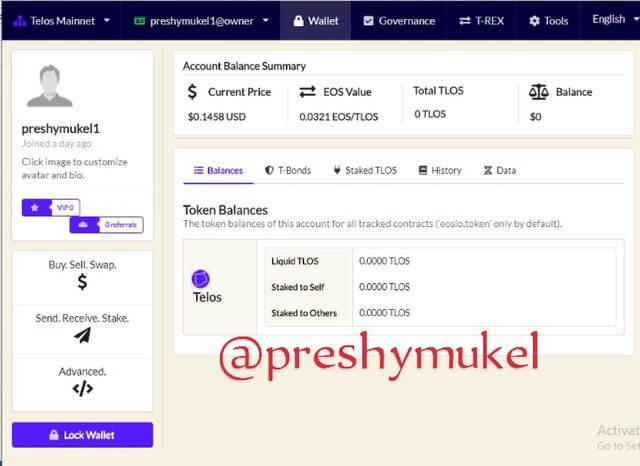
Exploring sqrl wallet
- The wallet: It is the first item on the sqrl wallet. The wallet displays the balance, current price of the coin, and its value at any given time, when I made research the price of EOS was $0.1464USD and its value was 0.0325EOS|TLOS.
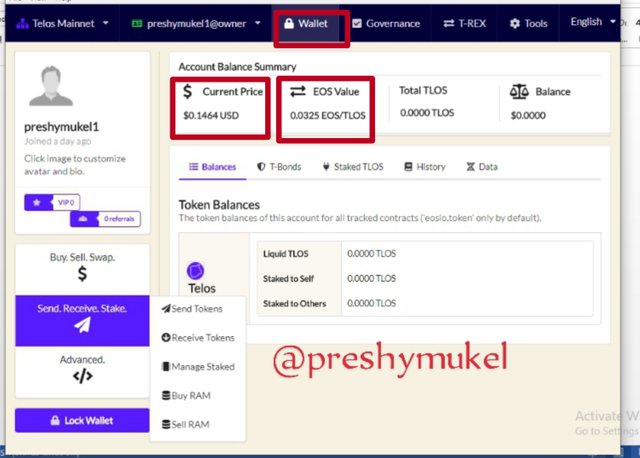
Governance: In this item you get details of the blockchain and the delegates with their respective votes.
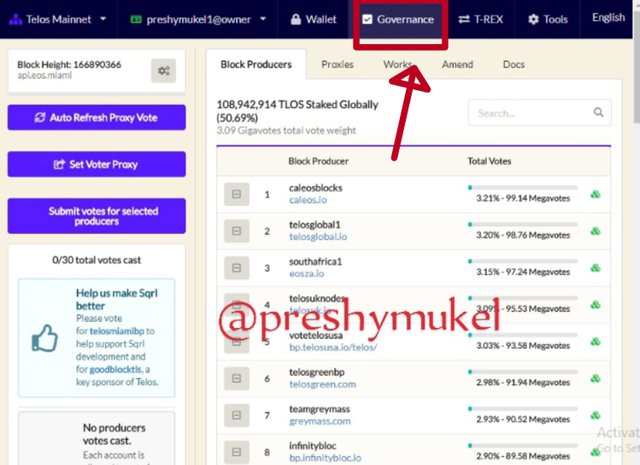
T-Rex: It give details about the Rex account
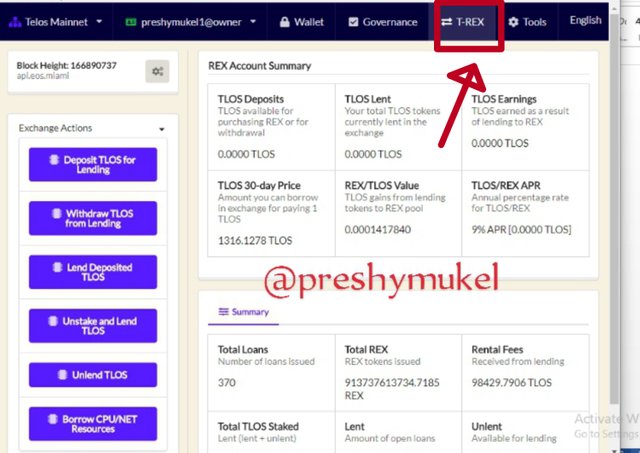
Then we can also find the Tools item which displays all the wallet configurations.
How to obtain CPU and RAM
To obtain CPU I entered the wallet section, then I select the send/receive stake, then on manage option.
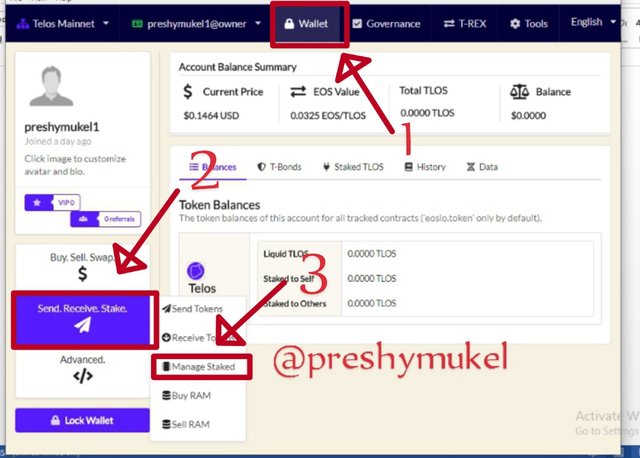
Then a window pops up where you can Update Staked Balances.
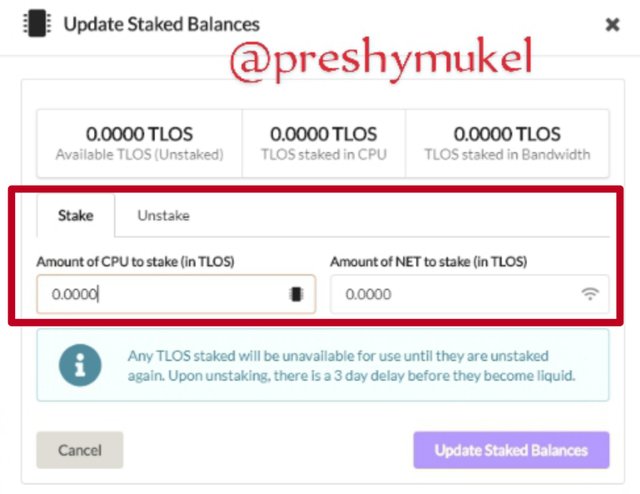
To obtain RAM I entered the wallet section, then I select the buy ram then a window pops up where you can input the amount of ram you want to buy in bites.
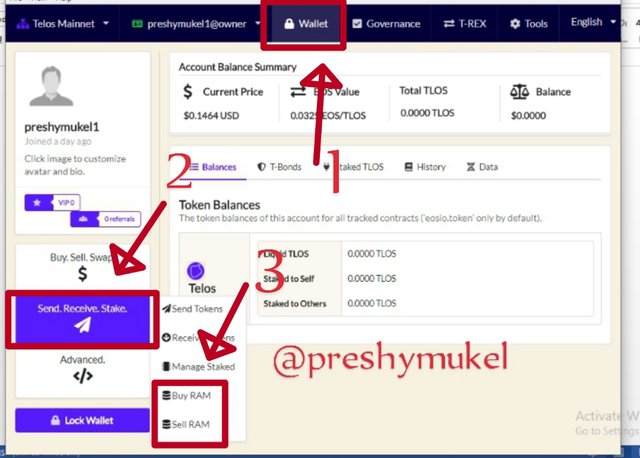
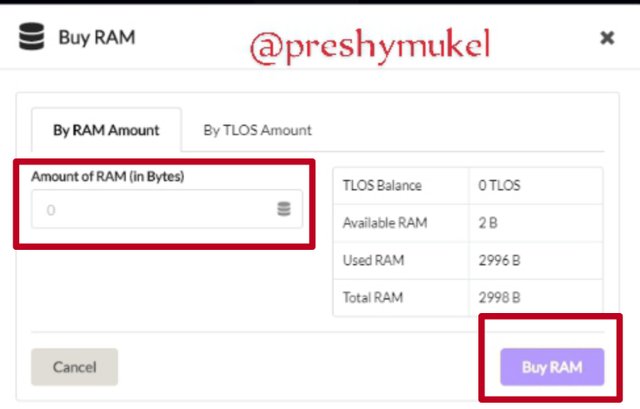
To sell you click on the sell ram option.
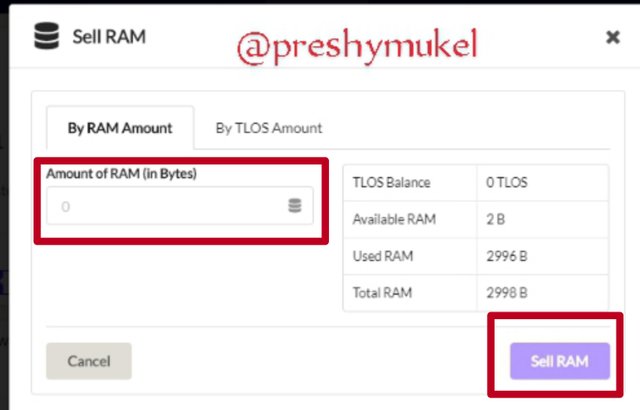

5.- Show the price of the REX token. And explain what it is used for.
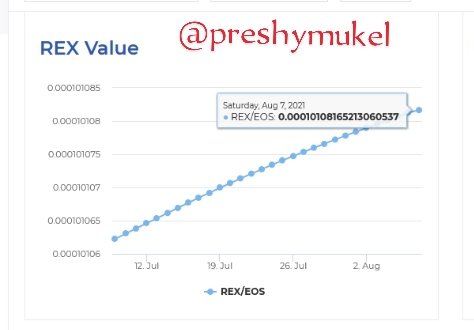
As at the time of this research the price of Rex at the rate of 0.00010108165213060537. This was gotten from EOSwebsite
Uses of Rex
Rex is a token used on EOSREX platform which is a Delegated Proof of Stake. Users are rewarded with rex token when they contribute to the network by staking their resources.
Daniel Lamier created the Rex token in the year 2018.
Cc;
@pelon53